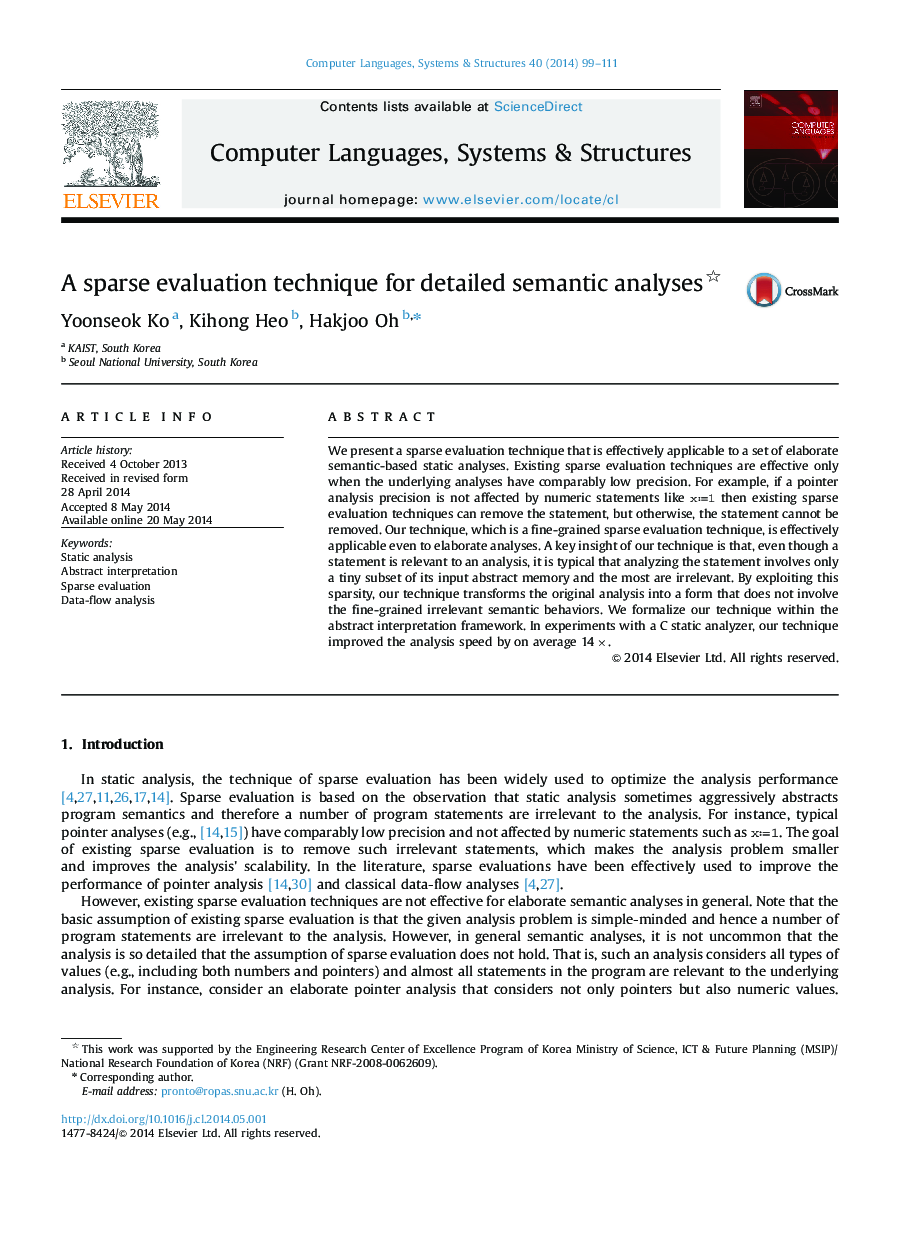| Article ID | Journal | Published Year | Pages | File Type |
|---|---|---|---|---|
| 417436 | Computer Languages, Systems & Structures | 2014 | 13 Pages |
•We propose a new sparse evaluation technique.•The proposed technique can be effectively applicable to abstract interpretation-based semantic analyses.•We show that our technique effectively improves the scalability of an industrial-strength static analyzer.
We present a sparse evaluation technique that is effectively applicable to a set of elaborate semantic-based static analyses. Existing sparse evaluation techniques are effective only when the underlying analyses have comparably low precision. For example, if a pointer analysis precision is not affected by numeric statements like x≔1 then existing sparse evaluation techniques can remove the statement, but otherwise, the statement cannot be removed. Our technique, which is a fine-grained sparse evaluation technique, is effectively applicable even to elaborate analyses. A key insight of our technique is that, even though a statement is relevant to an analysis, it is typical that analyzing the statement involves only a tiny subset of its input abstract memory and the most are irrelevant. By exploiting this sparsity, our technique transforms the original analysis into a form that does not involve the fine-grained irrelevant semantic behaviors. We formalize our technique within the abstract interpretation framework. In experiments with a C static analyzer, our technique improved the analysis speed by on average 14×.
